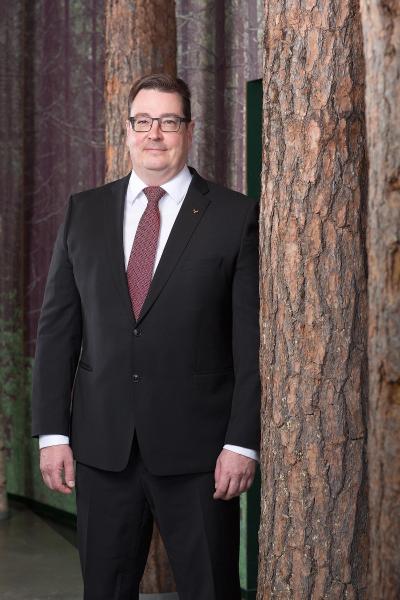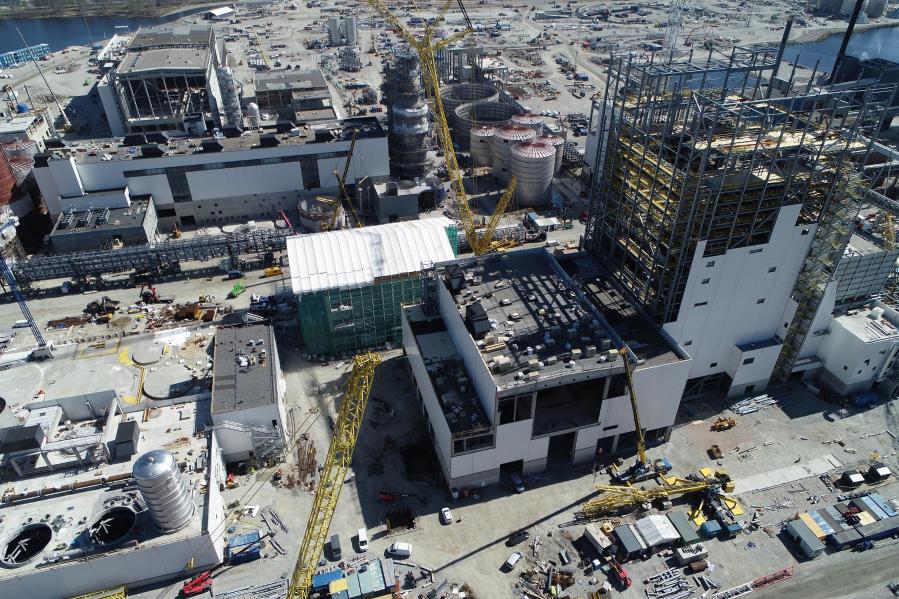The Kemi bioproduct mill uses an innovative process to take all the advantages possible when producing pulp and to replace fossil fuels with bioproducts, a huge step towards sustainability and a big boost for economic cohesion in Finland
Finland’s forests cover more than three quarters of the country’s landscape and most of it, 61%, is privately owned. That’s 20.3 million hectares available for forestry industries like timber, pulp and paper.
Growing concern over climate change and sustainability, however, has led to a drop in the demand for paper, hurting Finland’s economy. At the same time, the northern region, where a quarter of Finland’s forest lies, is an EU cohesion region where incomes are far lower than in the rest of the country.
There’s promise of a major boost to the Finland’s economy, however, from an innovative new sustainable bioproduct mill run by Finnish forest bioproducts company Metsä Fibre, part of Metsä Group. The mill will generate vast amounts of renewable energy besides it main product, pulp and also other bioproduct such as tall oil and turpentine.
“Our concept combines efficient use of raw materials, with energy and environmental efficiency,” says Jari-Pekka Johansson, project director of the new Kemi bioproduct mill. The mill uses 100% of the wood and produces a wide range of other biological products, which can replace fossil materials and fuels.
Wood by-products to produce energy
The mill will produce energy through an innovative process that transforms unused tree bark into biogas that can be used to replace fossil fuels.
Metsä Fibre has also invested in a sulphuric acid plant that uses sulphur compounds that are a by-product of the mill’s pulp process. The mill will collect odorous gases and produce sulphuric acid of them, which is a basic chemical needed in the pulp production. The self-sufficiency of sulphuric acid leads the new mill a step closer to closed chemical circulation. It further improves the environmental performance of the bioproduct mill.
Approximately half the bark from our mill will be gasified, and half will be used as biofuel,” says Johansson.

Jari-Pekka Johansson, project director of the new Kemi bioproduct mill
“The pulp production from the mill’s side streams is turned into valuable biochemicals and bioenergy,” says Johansson. “The best part is that our efficient technology produces much more bioelectricity than it consumes. The millproduces 2.0 Terrawatt-hours electricity per year, and the surplus energy will be distributed to the Finnish national power grid.” This energy is equivalent to roughly 2.5% of Finnish total electricity production per year.
The mill will start operations in the third quarter of 2023, helping Finland reach its target of becoming carbon-neutral and fossil fuel-free by 2035.
Acquisition of wood isn’t a mere business transaction
The wood needed for the mill is traceable. It will come from sustainably managed and certified forest sources (the Programme for the Endorsement of Forest Certification and/or the Forest Stewardship Council) managed by locals and municipal governments. Finland’s forests are sustainably managed, as they’re part of its cultural inheritance and one of the country’s main sources of income. Metsä Group is owned by nearly 100,000 Finnish forest owners.
“The community in Kemi is very tight,” says Mihail Juc, a Senior Engineer at the European Investment Bank. “Building relationships takes time, but once you are part of it, you’re offered a new set of opportunities. I interacted with everyone involved in the project, from the workers of the mill, to the woodcutters. It gave me a unique perspective on and experience of the project and the benefits it will bring to the region.”
The European Investment Bank is backing the Kemi mill with a €200 million loan signed in February 2021, a key element in the €1.85 billion total cost of the project.
Most of the wood for the new mill in Kemi comes from Finland: Lapland, Northern Ostrobothnia and Kainuu.
“The Kemi community is at the forefront of what we do and what we want to achieve,” says Johansson. “We do it by being transparent.”
Pulp as the calling card for people and businesses
A project of this magnitude has an impact beyond the wood industry. During its construction phase and once it starts working, the new mill will boost employment and industry in Kemi and in Finland.

“The biggest benefit will come from employment, especially during the construction period, where we have nearly 15 000 different workers involved,” says Mervi Nikander, head of economic growth and development in the Kemi municipality. “We are working closely with educational institutions and employment authorities in the region to ensure that we have enough labour in the area.”
The mill makes this industrial city more attractive to businesses and investors who see the city as a strong industrial centre worth investing in.
“The bioproduct mill will continue to act as a calling card for businesses both in upstream and downstream value chains,” says Adrian Enache, a Senior Engineer at the European Investment Bank. “As in any European city or area, the construction of a financial or industrial centre is seen as a business opportunity by many. They will move and open shops and services in this area, effectively contributing to economic, social and territorial cohesion.”
Investment by the EU climate bank
The Kemi project is the largest investment ever made by the Finnish forest industry in Finland. The bioproduct mill project contributes to with the Paris Agreement and EU Green Deal.
“This is a major investment as the EU climate bank,” says Lasse Tourunen, a loan officer at the European Investment Bank. “We saw right from the beginning the major potential and the ambition of this project in tackling climate change and cohesion. It aligns perfectly with the Bank’s climate objectives. Finland has a very unique and long-term sustainability approach to forest management and climate change. We at the EU bank are very proud to be a part of it.”
For Metsä Fibre, the support of the European Investment Bank is important.
“We need strong partners to carry out this great and significant project with us,” says Johansson. “Financial matters are one of the first and foremost things to ensure for a project to be successful. We are grateful for good cooperation with the EU climate bank.”
